Just outside the bazaar, at the foot of the citadel in Erbil, a group of older men are sitting out under the moon, talking over their country’s situation between slurps of thick Kurdish kahve. How long have communities gathered in this spot? At least since the 5th millennium BC. These men don’t know how many years they’ve been coming, decades for sure. They invite me to sit with them. As we talk, I realize they are all writers or teachers, most of them published. One of them, Faraydun Saman, has authored 13 books on the different ethnic groups of Kurdistan: Yazidis, Yarsan, Shabak, Zoroastrians, Fayli Kurds – a diversity he speaks of with pride. He is also a poet. Recently he has received threats, accusing him of animosity to Islam: he is afraid. Another is a children’s author: one of his books alerts children to the danger of landmines. Another, an artist, has already escaped (he was targeted, as a Jew) to Sweden, where he’s fascinated by the snow. Another is a maths teacher. I ask him about the state of the schools here, and he shakes his head: ‘Very bad, no books’. These literati, all of them multi-lingual (Kurdish, Arabic, Farsi, English, German, Russian, Turkish), remember when Iraq had the best education system in the Middle East.
[[{“fid”:”9284″,”view_mode”:”default”,”fields”:{“format”:”default”,”alignment”:””,”field_file_image_alt_text[und][0][value]”:false,”field_file_image_title_text[und][0][value]”:”Outside the Citadel in Erbil”},”type”:”media”,”field_deltas”:{“1”:{“format”:”default”,”alignment”:””,”field_file_image_alt_text[und][0][value]”:false,”field_file_image_title_text[und][0][value]”:”Outside the Citadel in Erbil”}},”attributes”:{“title”:”Outside the Citadel in Erbil”,”class”:”media-element file-default”,”data-delta”:”1″}}]]
I came to Iraq on a mission with the Economist Intelligence Unit and UNICEF to research the future for children and youth; the next phase is to devise scenarios to help shape UNICEF’s strategy. After a workshop in Baghdad to identify critical factors affecting child development, I go to Kurdistan to learn about the situation there. My hosts at UNICEF take me to visit Harshan Camp for Internally Displaced People (IDPs), the closest camp to Erbil – where 300 families live in caravans measuring 3x5m (another 50 families are on the waiting list). Most of the inhabitants are from Mosul and Ninewah, having fled ISIS. Many have been here for four years: they do not dare return, given the extent of sectarian hostility, deadly in spite of the liberation. The head of the UNICEF office in Erbil, Maulid Warfa, tells me this is a “very nice” camp compared to others: there are some services inside – clean water and a regular supply of food, a school (which UNICEF provided and he opened), a shop, a mobile medical van once a week – and also access to more services and even paid work in the city. Yet as the Camp Manager explains, there are no jobs for people living here, and there’s a big problem with marriage of girls as young as 12, as families don’t have the means to support them. He adds that this is true of all IDP camps in Iraq, without exception.
We go into the school, a collection of prefab classrooms with now broken a/c and lighting systems. There hasn’t been much maintenance in the four years since they were built, and Warfa is cross that the children don’t treat the facilities better. I have the chance to talk to a group of teenage boys (the community has segregated the school, but I’m assured that the girls have the same facilities): again, these boys are relatively very well-off. Their parents can leave the camp to find work in Erbil, and some of them have even found accommodation outside of the camp. I ask them what they see in the future. ‘War,’ says one, immediately, shrugging his shoulders. I hear him wrong. ‘What sort of work?’ He shakes his head: ’No work. Just war.’ [[{“fid”:”9285″,”view_mode”:”default”,”fields”:{“format”:”default”,”alignment”:””,”field_file_image_alt_text[und][0][value]”:false,”field_file_image_title_text[und][0][value]”:”In the school provided by UNICEF at Harshan Camp”},”type”:”media”,”field_deltas”:{“2”:{“format”:”default”,”alignment”:””,”field_file_image_alt_text[und][0][value]”:false,”field_file_image_title_text[und][0][value]”:”In the school provided by UNICEF at Harshan Camp”}},”attributes”:{“title”:”In the school provided by UNICEF at Harshan Camp”,”class”:”media-element file-default”,”data-delta”:”2″}}]]
He may well not be wrong. Since the financial crisis in 2014, there are very few jobs. The main employer is the government, which is saturated: in Erbil, it hasn’t recruited for three years. The private sector is weak: they can only operate in partnership with government – which is highly corrupt. Students across Iraq are restricted to vocational studies in sectors such as crude oil, which offer very little local employment. The possibility of violent conflict, especially if they return to Mosul, is high: there’s bitter anger among those who suffered extreme violence and lost family members, many of whom feel they were betrayed by former neighbours of different sects. A UNICEF child protection officer tells me that many disturbed juveniles end up in detention centers where they are treated as terrorists. They can be held for up to three years before being convicted, then sentenced to up to 15 years. Lawyers who try to help them can be accused of sympathizing with terrorists.
Maulid asks the boys what they can do to make things better. They stare back at him blankly: ‘What can we do?’ It is hard to say: entrepreneurship isn’t possible without the ability to bank or access to resources. I ask the boys what could make things better for them. Another pipes up: ‘Decentralisation’, he says – meaning for their region, as there is for Kurdistan. ‘At least then we’d have politicians nearby that we can talk to.’
I also talk to a group of elders in the camp: women and men separately. Their concerns for the next generation are the same: psychosocial trauma first of all. Many of the children display aggressive and disturbed behaviors, beyond what the school system can influence. Beyond trauma, they fear radicalization: what will happen to the young men who leave school with no jobs? Will they repeat the atrocities they’ve seen? Will they be tempted by the militias’ offers of financial reward, a common cause and collective identity? When I ask them what sort of leadership they want, the women say again and again “A second Saddam”: in their eyes, he represented stability and strength. When I ask them what can change, they say Iraq is a pawn in the hands of foreign players – Iran, Turkey, Saudi Arabia – but particularly the US. ‘It’s like Iraq was a piece of paper and the US came and scribbled all over it. How can we erase that?’ There’s also a strong sense of abandonment: during the war on ISIS, there were more humanitarian interventions. After liberation, many left. Their exit is felt to be premature. [[{“fid”:”9288″,”view_mode”:”default”,”fields”:{“format”:”default”,”alignment”:””,”field_file_image_alt_text[und][0][value]”:false,”field_file_image_title_text[und][0][value]”:”Elders in Harshan Camp”},”type”:”media”,”field_deltas”:{“4”:{“format”:”default”,”alignment”:””,”field_file_image_alt_text[und][0][value]”:false,”field_file_image_title_text[und][0][value]”:”Elders in Harshan Camp”}},”attributes”:{“title”:”Elders in Harshan Camp”,”class”:”media-element file-default”,”data-delta”:”4″}}]]
Our research team is also granted access to government officials in different ministries: Education, Planning, Youth and Culture, Labour and Social Affairs. The outlook for children across them is pretty consistent: insufficient resource to cope with trauma; slow development of laws to protect children from violent abuse, child labour and marriage; the lack of employment opportunities; inadequate education for future sectors, particularly in technology. When it comes to solutions, their efforts are up against the difficulties of widespread corruption, economic crisis, infrastructure shortages (the aftermath of extensive conflict), and the threat of more violence due to failing reconciliation processes.
In Baghdad, our access beyond government officials is extremely limited. The security is too shaky to venture into the city, and so UN workers and guests shuttle back and forth between the UN’s gated and walled compound, and a secure hotel nearby – passing multiple checkpoints at both sides. In the armored vehicles are first aid kits and bullet proof vests and helmets. We get a quick briefing from a very fast-speaking New Yorker: my main takeaway is ‘If anything happens, duck’.
As I mentioned, this trip was part of a scenario planning project to inform UNICEF’s strategy. I come away clear that UNICEF will need more partners to deal with the vast array of challenges. If your organization can help – particularly with trauma and reconciliation – then please get in touch with Maulid Warfa: mwarfa@unicef.org.

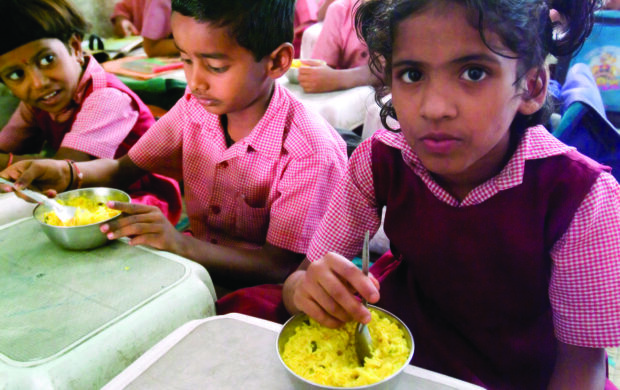
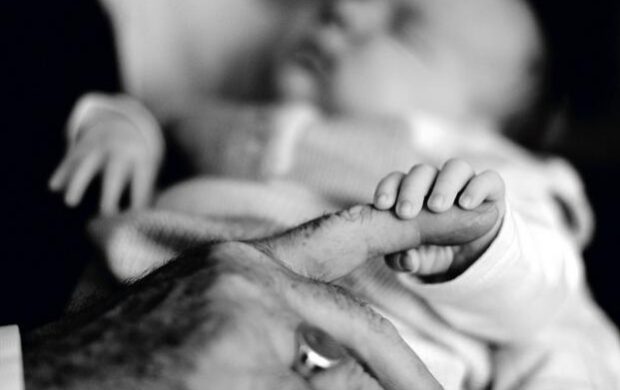
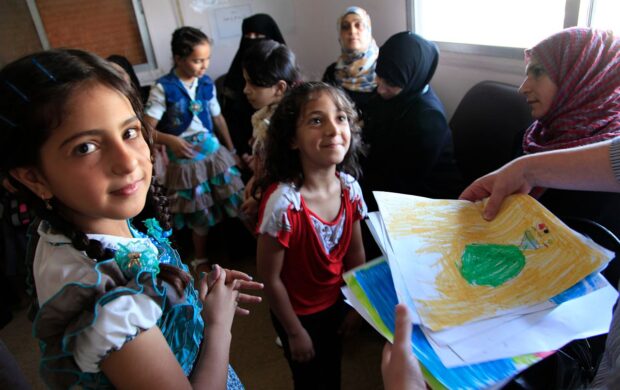
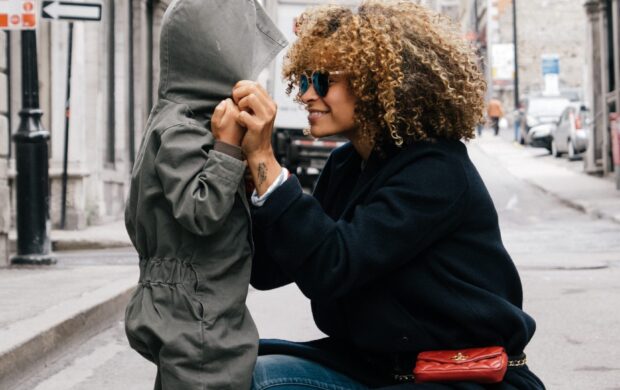
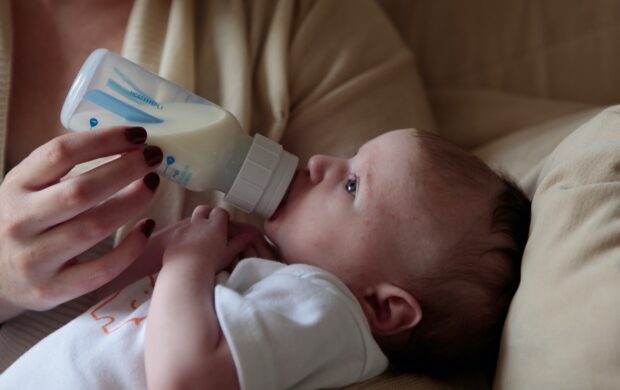
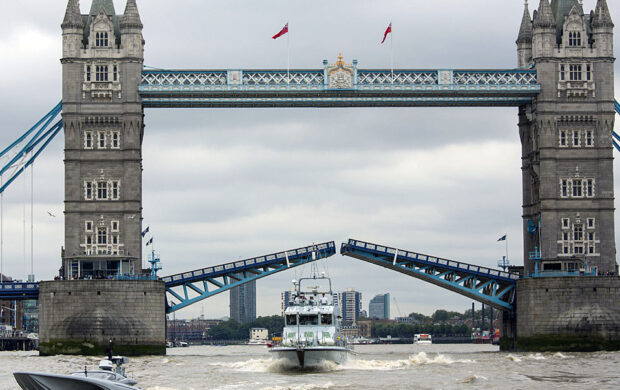
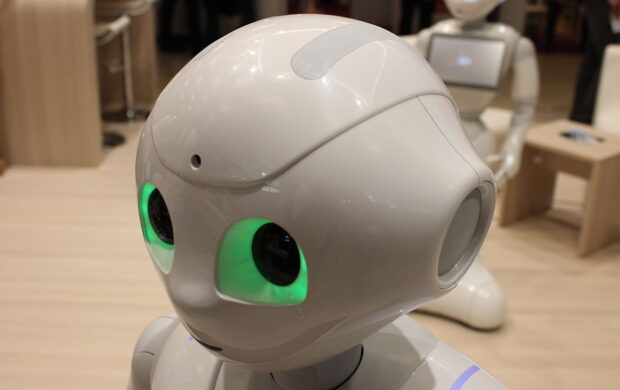

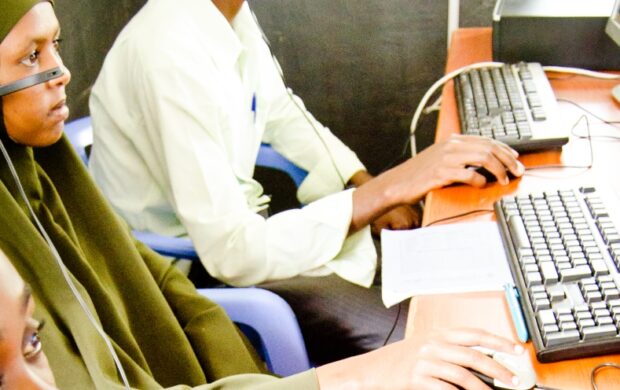
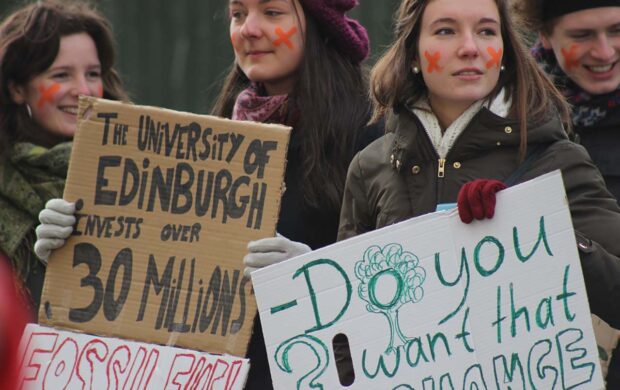
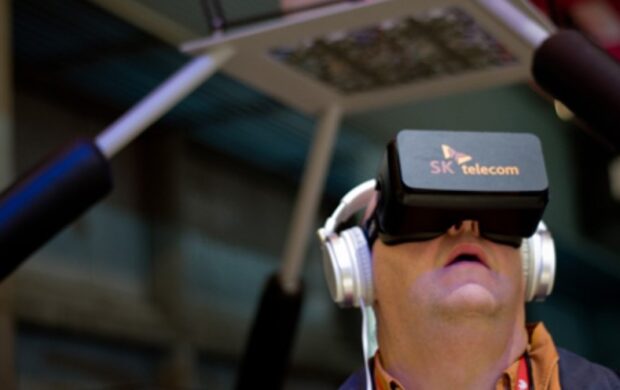
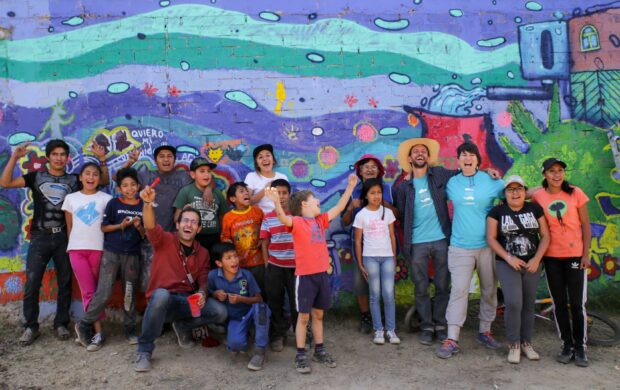

Join discussion